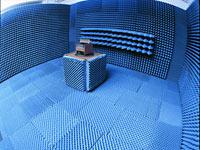|
|||||||||||
| Electrical Engineering | |||||||||||

Electrical Engineering is concerned with the design, research, development, planning, manufacture and management of systems and devices relying on electricity and light to transmit data and power which underpin modern economies and contribute to the quality of life. Many of these devices rely on the use of new information and computer-intensive technologies.
Employment is found throughout industry, in service industries, large industrial groups and small innovative private specialist firms. An Electrical Engineer may be responsible for research, design, manufacture and operation of:
Studying Electrical Engineering at UNSW
The study of Electrical Engineering is primarily through the School of Electrical Engineering and Telecommunications at UNSW (www.eet.unsw.edu.au ). The School offers a four year full-time undergraduate program, the Bachelor of Engineering (Electrical Engineering). Combined degree programs, "fast-track" programs to a Masters degree, postgraduate and research studies are also available.
Electrical Engineering can be studied as
|
|||||||||||



